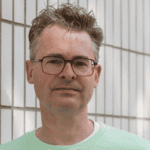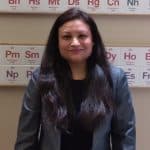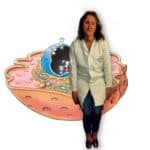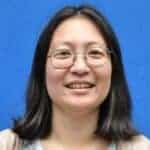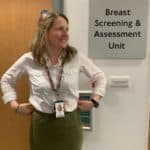Profile
Edward Smart
-
About Me:
A mathematician who likes working with others to solve problems using data science and machine learning.
-
Read more
Live in Bournemouth. Favourite pizza is the Dominos Hot and Spicy. Like South Park, cricket and history.
Like travelling and exploring new places.
Dislike gardening, very hot weather and delayed trains.
-
My Work:
I’m a University Researcher who works with companies to help them make the best use of their data. For example, detecting faults and predicting patterns.
-
Read more
I am an Associate Professor (a senior level researcher) who runs the Innovative Industrial Research (IIR) group at the University of Portsmouth.
I lead a team of researchers that work with companies to help them use machine learning and data science to improve their products and services.
Machine learning is about trying to learn from data. For example, learning to classify pictures of your pets, or predicting your football club’s future results based on past performance.
Examples of our work include …
- Predicting engine failure on ships
- Predicting dairy milk filling machine failure
- Detecting unsafe flying in passenger aircraft
- Detecting an increase in food safety hazards (e.g. E Coli or Salmonella)
- Detecting delayed trains and helping railway companies quickly resolve the problem
- Tracking a man overboard using a thermal camera
-
My Typical Day:
Before the pandemic, I would catch a train at 7 am to travel to Portsmouth. A typical day would include exploring data on my computer for a project, writing grants (to fund research), talking to our project partners and helping my students with any questions they have
-
Read more
My desk at work has 2 desktop computers on it, my laptop, my tablet and a deskphone, which I almost never use.
I use my laptop to do general things like answering emails, reading reports and journal papers, searching for information etc. I also use it to write code for my experiments. These experiments usually run on my desktop computers because they are more powerful.
Typically I do things like …
- DATA ANALYSIS – this involves receiving data from partners. This is usually a lot of numbers. Hopefully it is all ordered in neat rows with nice labels and no missing gaps. If not, I must clean the data. For example, a (living) persons age cannot be 10000, or a boat cannot be travelling at 1000 miles per hour. Once I have a nice clean dataset, I can explore it for patterns. This involves using mathematical methods to help me understand what the data is telling me. Then I can build models that tell me something useful. For example, if I had engine data, I could build a model to detect the difference between normal and faulty data. Useful as no-one wants to be on a broken down train/car/boat!
- GRANT WRITING – Research can be expensive and the Government has a pot of money that researchers and companies can apply for to do new projects. There are application forms for this money and we need to explain what the project is, why we need it, how will we do and what the results will be. We need to be good at writing project plans and computing project costs. For example, money for equipment, staff time and travel to different locations
- PAPERS – Researchers write journal papers to tell other researchers about their research.
- PhD and Project Students – I meet with my students so they can talk about their work and I can help them with any problems they may have.
Typically my day begins with answering emails. I might have meetings with other researchers or with company partners on one of the projects we are running. The best days are when few people bother me and I can just work on looking at data and discovering new insights.
-
What I'd do with the prize money:
Build a demo to demonstrate the power of data and how it can help us to learn new insights about a piece of equipment.
-
Education:
Peckover Primary School (Wisbech, Cambridgeshire) – 1987-1994
Wisbech Grammar School (Wisbech, Cambridgeshire) – Secondary School (11-18) – 1994-2001
University of Reading (Reading, Berkshire) – Undergraduate Degree – 2001 – 2005
University of Portsmouth (Portsmouth, Hampshire) – PhD Degree – 2007-2011
-
Qualifications:
SECONDARY SCHOOL
GCSEs – Wisbech Grammar School
English Literature, Maths, Latin, German, IT, Physics, English, History, Chemistry
A-Levels – Wisbech Grammar School
Maths, Further Maths, Physics, History
We had little choice with our GCSEs in that we had to do maths, english and english literature and then at least one language and at least one science and at least one humanities (geography or history). I knew I liked maths and physics so those were good choices for me. History I took as I enjoyed it. It helps you learn about people and how they behave and respond to all kinds of challenges.
For A-levels, I knew I wanted to do maths and further maths and physics. I had to really fight with my school to do history because they thought I should take chemistry but I was really poor at doing experiments so didn’t want to. I wanted to do history personally because I enjoyed it but because it teaches you how to build an argument and assess material and to see both sides to an issue
Undergraduate Degree (2001 to 2005)
I did an MMath Mathematics degree at the University of Reading. MMath stands for ‘Master of Mathematics’ and this was a 4 year course, rather than a standard 3 year course. I wanted to do it as I wanted to learn more maths.
Originally, I applied to do maths and meteorology as I thought weather forecasting could be an interesting career but it turned out I was much better at maths than physics (for meteorology, good maths and physics skills are important).
By switching to just maths, it meant I was taught modules that form the basis for machine learning (though I did not know that at the time). I received a first class degree.
PhD Degree (2007 to 2011)
I discovered machine learning during my first job and wanted to learn more about it. I saw a funded PhD opportunity at the University of Portsmouth. It was to explore patterns in data that comes from passenger aircraft. Like car drivers, pilots must have a lot of training and pass exams before they can fly. Data from all passenger aircraft is analysed by law to make sure the planes are flown safely. During my PhD, I developed a new method that helped detect unseen anomalies. This meant that those flights could be checked out and actions taken, which is why flying is very safe.
-
Work History:
Clearswift Ltd – 2006 to 2007
This was my first job after University but it took me a long while to get it. When I was an undergraduate, I did a lot of maths, but I hardly did any computer programming at all as it didn’t appear too important. When looking for jobs, I really struggled as without being good at coding, it would be hard to implement any ideas I had.
I didn’t use the careers service much during school or university but I really should have. Fortunately, I got an opportunity because the son of a person I tutored at University worked here, which got me an interview. Always try and help others. You never know, they might help you in the future.
This job was about detecting inappropriate images in emails so that they can be blocked before they are viewed in the workplace or in schools. I used machine learning to classify safe images and unsafe images. It was really powerful and made me want to do a PhD. There was a lot of coding with this job which I struggled with as others were much better than me. Leaving was the right choice because a PhD is at least 3 years and that was plenty of time to improve my coding skills.
University of Portsmouth – 2011 to present day
After my PhD, I continued with the research group as a staff researcher. I started off as a junior researcher, before moving up to senior level and taking over the group after my boss left.
-
My Interview
-
How would you describe yourself in 3 words?
Pizza loving data scientist
What did you want to be after you left school?
No idea
Were you ever in trouble at school?
Not really, though sometimes played cards/darts during free study periods.
Who is your favourite singer or band?
James
What's your favourite food?
Pasta
If you had 3 wishes for yourself what would they be? - be honest!
Better cricket/football player
-

